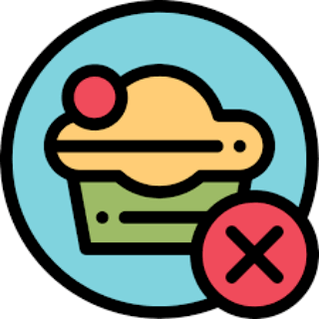The Japanese diet has gained widespread popularity among people who want to lose weight. Above all, they are attracted by the short duration (only 14 days) and the availability of the necessary products.
How the Japanese diet came about
Many people believe that the Japanese diet is related to the daily diet of the people of this country, but this is not true. Most likely, the diet got this name because of the need for strict diet and high performance. The Japanese are very obliging and responsible people, they approach every business with all care and strictly follow the established rules, so they have a high result.
Another version of the appearance of the name is the place where the diet was invented. It is believed to have been developed at the Japanese clinic Yaeks. Nutritionist Naomi Moriyama, who developed the weight loss system, is absolutely certain of its effectiveness and the adaptability of the products to the usual diet of Europeans, whose taste differs significantly from that of the Japanese.
The benefits of the Japanese diet

The Japanese diet will help cleanse the body of toxins, as well as regulate metabolism in just 14 days.
A large amount of fruit will saturate the body with fiber and help improve bowel function and a sufficient amount of food will maintain a feeling of satiety and high performance.
Features and principles
Diet, unlike many others, does not involve fractional nutrition. It is designed for three meals without additional snacks. You can not change the days of the diet in parts and in any way try to "improve" the diet, otherwise it is no longer a Japanese diet and you have to start from the beginning.
Every morning you should drink a glass of cool water, it will help speed up your metabolism and get rid of the feeling of hunger. The rest of the year, it is also recommended to drink as much pure mineral (not carbonated) or boiling water as possible.
Shopping list

To successfully maintain your diet, you need to buy the following foods:
- 1 package of green tea of any kind you want. Make sure there are no flavors in the composition.
- 1 packet of good coffee beans (or ground).
- 2 cassettes (20 pcs. ) Chicken eggs.
- 1 kilo of chicken (breast).
- 1 kilo of beef (it is better to get lean).
- 2 kilos of seafood.
- 0. 5 liters of extra virgin olive oil.
- 2 medium white cabbage.
- 1 zucchini or eggplant.
- 2-3 kg. fresh carrots.
- 1 kg of any fruit except bananas and grapes.
- 1 l. Tomato juice.
- 1 liter of kefir.
- 2 lemons.
All supplies must be fresh and the best you can find.
What should not be in the diet

Avoid sugar and salt altogether during the Japanese diet. The same rule applies to all types of baked goods, confectionery and alcoholic beverages.
Japanese diet menu daily
The Japanese diet is very similar to its diet with the well-known chemical diet, which is often used to treat obesity in diabetics. It also uses the effect of reducing the amount of carbohydrates while increasing the proportion of protein.
The diet menu is quite strict, no changes are allowed in it.
Day 1
- Breakfast: black coffee without added sugar, sweeteners or milk.
- Lunch: 2 boiled eggs, boiled cabbage, spices with vegetable oil and a glass of tomato juice.
- Dinner: 200 gr. fried or boiled fish.
Day 2
- Breakfast: black coffee with a slice of rye bread.
- Lunch: boiled cabbage seasoned with vegetable oil + 200 gr. fried or boiled fish.
- Dinner: a glass of kefir with 100 gr. boiled beef.
Day 3
- Breakfast: black coffee with a slice of rye bread heated in a toaster (you can replace it with a flavorless flavored cookie).
- Lunch: any number of zucchini or eggplant fried in vegetable oil.
- Dinner: salad of raw cabbage, spices with vegetable oil + 200 gr. boiled beef without salt.
Day 4
- Breakfast: fresh medium-sized carrots, finely chopped on a grater or in any other convenient way + whole lemon juice.
- Lunch: a glass of tomato juice + 200 gr. boiled or fried fish.
- Dinner: salad of 200 gr. any fruit.
Day 5
- Breakfast: fresh medium-sized carrots, finely chopped on a grater or in any other convenient way + whole lemon juice.
- Lunch: a glass of tomato juice + 200 gr. boiled fish.
- Dinner: 200 gr. any fresh fruit.
Day 6
- Breakfast: black coffee without additives.
- Lunch: 500 gr. boiled chicken breast without salt + salad of fresh carrots and cabbage, seasoned with oil.
- Dinner: a whole fresh carrot + 2 boiled eggs.
Day 7
- Breakfast: a glass of green tea.
- Lunch: 200 gr. boiled beef without salt.
- Dinner: 200 gr. any fresh fruit, or 200 gr. boiled or fried fish, or 2 boiled eggs + fresh carrots, or a piece of boiled beef with a glass of kefir.
Day 8
- Breakfast: black coffee.
- Lunch: 500 gr. boiled chicken breast without salt + salad of raw carrots with cabbage, spices with vegetable oil.
- Dinner: 2 boiled eggs + fresh carrot salad dressed with vegetable oil.
Day 9
- Breakfast: fresh carrots seasoned with lemon juice.
- Lunch: 200 gr. boiled or fried fish with a glass of tomato juice.
- Dinner: 200 gr. any fresh fruit.
Day 10
- Breakfast: black coffee without sugar.
- Lunch: 3 medium carrots dressed with vegetable oil + boiled egg + 50 gr. cheese.
- Dinner: 200 gr. any fresh fruit.
Day 11
- Breakfast: black coffee without additives with a slice of rye bread.
- Lunch: any amount of eggplant or zucchini fried in vegetable oil.
- Dinner: 200 gr. boiled beef, salad with fresh cabbage, spices with vegetable oil and 2 boiled eggs.
Day 12
- Breakfast: black coffee.
- Lunch: 200 gr. boiled or fried fish with fresh cabbage salad, spices with vegetable oil.
- Dinner: a glass of kefir + 100 gr. boiled beef without salt.
Day 13
- Breakfast: black coffee without additives.
- Lunch: boiled cabbage, seasoned with vegetable oil + a glass of tomato juice + 2 boiled eggs.
- Dinner: 200 gr. boiled or fried beef in vegetable oil.
Day 14
- Breakfast: black coffee without additives.
- Lunch: 200 gr. boiled or fried fish, fresh cabbage salad, spices with olive oil.
- Dinner: 200 gr. boiled beef without salt + a glass of kefir.
How to stay on a diet

In order not to break your diet at the most inopportune moment, try to follow the recommendations:
- Plan it for the month in which there are no long breaks and trips.
- Always remember the motivation that made you lose weight.
- find yourself a hobby.
- disagree with a loved one that you will not break
- just believe in your own strength!
How to get in and out of the Japanese diet
Every diet is a great stress for the body, so you need to prepare for it in advance.

At least one week before the scheduled day, start limiting your sugar intake and also gradually reduce food portions. Also try to reduce (or even eliminate) from the diet all dishes that can be described as "fast food", "sweet" or "pati. For example, if you ate 5 cakes a day, then you should remove fromdiet every day of the week. Then, until the first day of the diet, the body will live peacefully for 2 days without cake.
Many people find great help to surround themselves with various Japanese accessories (chopsticks, tea ceremonies, figurines, etc. ) They will help you to tune in psychologically in the right way.
When the diet is over, under no circumstances should you run and overeat your favorite dishes. Gradually start introducing familiar foods into your diet, starting with small portions. Then the effect of weight loss will be able to endure for a few years, because it is not recommended to repeat the diet earlier. The best solution would be to introduce yourself to the right diet, this habit will allow you to always stay in shape.
Contraindications
There are no ideal diets, so even this system may not suit every person. First of all, in the process of dietary restrictions, the body is forced to undergo serious psychological tests. This is especially true for people living in big cities, where you can find all kinds of cafes and fast food at every turn. In addition, during the diet, there is a severe restriction of access to nutrients, and this is an additional stress for the body.
If a person has problems with the functioning of the cardiovascular system, kidneys or liver, has chronic gastritis or ulcers, under no circumstances should he follow a Japanese diet. Otherwise, all diseases can worsen abruptly: a large amount of fluid will affect the kidneys and green tea and coffee have a strong effect on the heart due to its high caffeine content.
Also, salt restriction can lead to serious consequences. Any doctor will confirm that a small amount of salt is simply necessary for the body to function normally and a sudden rejection of it leads to the withdrawal of fluid and thickening of the blood in the vessels. Therefore, many experts still advise slightly adding salt to foods, despite strict dietary recommendations.
The Japanese diet has a huge number of benefits, it is easily tolerated, but may be contraindicated in people with certain diseases. Gwyneth Paltrow and many other celebrities have actually lost weight.































